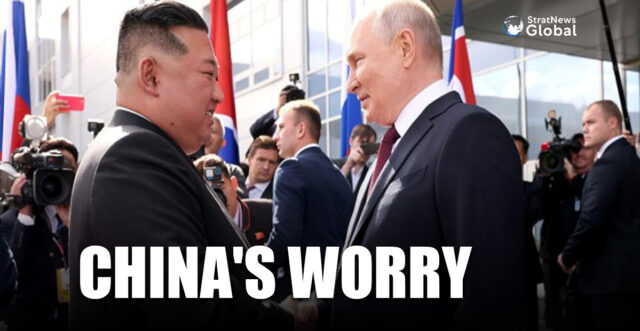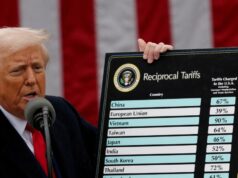China is reportedly uncomfortable with the deepening military cooperation between North Korea and Russia, according to U.S. Deputy Secretary of State Kurt Campbell.
Speaking at a seminar, Campbell addressed Beijing’s concerns regarding Pyongyang’s reported military support for Moscow, including claims of 10,000 North Korean troops assisting Russia in its war against Ukraine.
This development has sparked strategic debates among U.S. allies in Asia regarding China’s position. Japanese officials have questioned whether Beijing approves of North Korea’s actions, noting China’s public silence on the troop deployments. Analysts argue that China may perceive the strengthening North Korea-Russia ties as a risk, potentially encouraging closer U.S. alliances with Japan and South Korea—partnerships Beijing opposes as countering its regional influence.
China’s Calculations and Symbolic Gestures
As tensions rise, China has signaled a willingness to reduce friction with neighboring countries. Recently, Beijing informed Japan of its decision to remove a buoy placed near the disputed Senkaku Islands in Japan’s exclusive economic zone. While symbolic, the gesture may reflect China’s efforts to appeal to Japanese factions hesitant about deepening U.S. alignment.
Campbell suggested that Chinese officials might not be fully aware of the extent of North Korea’s activities or Russia’s involvement in encouraging them. Despite refraining from openly criticizing Moscow, Beijing reportedly views the closer Pyongyang-Moscow relationship as troubling, particularly if it leads to outcomes that contradict Chinese interests.
Dennis Wilder, a former CIA East Asia expert, described Beijing’s silence on North Korea’s troop involvement as “staggering,” noting no state media acknowledgment of the issue. He warned that potential nuclear technology exchanges between Russia and North Korea could push Japan and South Korea closer to the U.S., further isolating Beijing.
‘Transactional Symbiosis’
Admiral Samuel Paparo, head of the U.S. Indo-Pacific Command, labeled the Russia-North Korea partnership a “transactional symbiosis.” North Korea is reportedly supplying artillery and missiles to Russia in exchange for missile and submarine technologies. He also alleged that China indirectly supports Russia’s war effort through resources like semiconductors and machine tools.
While some experts believe Beijing is unsettled by Pyongyang’s military actions, others argue the discomfort may not drive a significant rift between China and Russia.
Andrew Shearer, Australia’s Director General of National Intelligence, downplayed the notion of exploiting potential divisions, emphasizing China’s strategic and military backing of Russia in the Ukraine conflict.
Japanese scholars offered nuanced views, with some suggesting that Beijing’s broader strategic calculations align with Moscow’s success. For example, Professor Emi Mifune cited China’s increased access to maritime routes in the Sea of Japan as a significant gain from its partnership with Russia.
A Complex Balancing Act
China’s muted response to the North Korea-Russia alliance reflects a delicate balancing act. While the partnership poses potential risks for Beijing, China’s broader interests in countering Western influence and maintaining regional power appear to outweigh any immediate concerns.
As North Korea strengthens its military role in Ukraine, China faces growing challenges in managing its alliances and regional influence amid a shifting geopolitical landscape.
(With Inputs From IBNS)
In a career spanning three decades and counting, Ramananda (Ram to his friends) has been the foreign editor of The Telegraph, Outlook Magazine and the New Indian Express. He helped set up rediff.com’s editorial operations in San Jose and New York, helmed sify.com, and was the founder editor of India.com.
His work has featured in national and international publications like the Al Jazeera Centre for Studies, Global Times and Ashahi Shimbun. But his one constant over all these years, he says, has been the attempt to understand rising India’s place in the world.
He can rustle up a mean salad, his oil-less pepper chicken is to die for, and all it takes is some beer and rhythm and blues to rock his soul.
Talk to him about foreign and strategic affairs, media, South Asia, China, and of course India.





